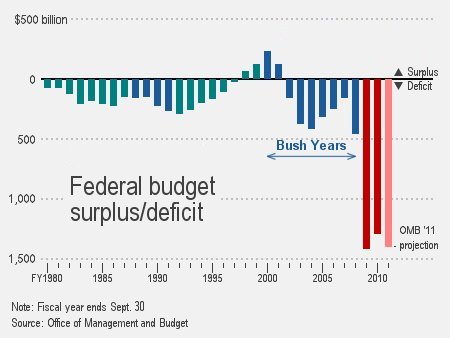That Government is best which governs least – Henry David Thoreau
I woke up this morning with a thought. What is the best way to delineate the coercive powers of State interventions from the free influences of communities within Society? I believe this article does the job the best. After reading this article, one can quickly see why the founders bound the federal governments hands all through the Constitution. Sadly, for freedom at least, the federal government has broken its bounds and reigns as the supreme sovereign across the land.
Were the Anti-Federalist Were Right?
If historians were honest, they would have to admit the Anti-Federalists, men like Patrick Henry, Samuel Adams, and John Hancock, more accurately predicted America’s future than the writers of the Federalist Papers (Madison, Hamilton, and Jay) did. The growth of consolidation and power by the federal government at the expense of the sovereign states is inarguable. As so often happens in history, however, the losing side is forgotten despite the truthfulness of its cause. Power politics simply coerces people through “might is right” maneuvers. Influence, on the other hand, requires truth and reason to persuade others of the causes rightness and justice. Anyone can use power, but it takes leaders to influence.
State versus Society?
The State (monopoly of force) advances through power, while Society (free communities) advances through influence. Which social structure do you think ensures a person’s property and liberty better? It’s vital to follow the thought wars of each generation. For example, in the 16th and 17th centuries, a person who wasn’t educated on religious issues of the day was lost. Regretfully, because thoughts lead to actions, much blood was spilt before freedom of religion and conscience was adopted in the West.
Ideas have Consequences
Similarly, in the 18th and 19th centuries, political structures dominated the thought currents. With the Glorious, American, and French Revolutions leading the way, governmental structures aimed at providing freedom for the people were the prevalent philosophical currents of the day. Monarchies, republics, and democracies, jockeyed against one another in the battle of ideas. Liberty and power pivoted on the outcomes of these interminable wars.
Today, however, the war of ideas has changed fields. Regardless of what governmental structure a country has, the key question concerns the country’s economic perspective. Economic structures can produce liberty or despotism in a monarchy, republic, or a democracy. Governmental organization, in other words, is less vital to liberty than a proper comprehension of economics. In fact, I believe, without exaggeration, that the separation between liberty and power is tied directly to the economic understandings of the next generation of State leaders. Spiritual liberty with civil rights is still despotism if the people are not economically free.
Austrian School of Economics
The Austrian School of economics, in my opinion, is the best systematized culmination of economic truths gained over the last several millennia. When it comes to economics, the American founders can legitimately proclaim they “didn’t know what they didn’t know.” We, on the other hand, do not have the same excuse thanks to Mises, Rothbard, et al. Indeed, any politician who remains ignorant of the Austrian School of Economics has allied himself against liberty in its perpetual war against power.
Cain & Abel
The conflict between liberty and power is as old as Cain and Abel. Which side do you align with? Choose wisely for society’s sake. A limited State with a free economic system is the soil where the liberty tree blossoms. We cannot afford to remain ignorant of these historical truths. Read the article and start your education process for life and liberty.
Sincerely, Orrin Woodward
One of the most important thinkers on the nature of the state was Franz Oppenheimer, who distinguished between the economic means and the political means, and defined the state as the organization of the political means. As Hans-Hermann Hoppe explains:
Franz Oppenheimer is a left-anarchist German sociologist. In The State he distinguishes between the economic (peaceful and productive) and the political (coercive and parasitic) means of wealth acquisition, and explains the state as instrument of domination and exploitation.
As Oppenheimer wrote in his classic work The State:
I mean by [the “State”] that summation of privileges and dominating positions which are brought into being by extra economic power. And in contrast to this, I mean by Society, the totality of concepts of all purely natural relations and institutions between man and man …. [from the Introduction]
There are two fundamentally opposed means whereby man, requiring sustenance, is impelled to obtain the necessary means for satisfying his desires. These are work and robbery, one’s own labor and the forcible appropriation of the labor of others. … I propose … to call one’s own labor and the equivalent exchange of one’s own labor for the labor of others “the economic means” for the satisfaction of needs, while the unrequited appropriation of the labor of others will be called the “political means.” … The state is an organization of the political means. [Ch. 1]
Rothbard was also heavily influenced by Oppenheimer, writing in The Ethics of Liberty:
If the state, then, is a vast engine of institutionalized crime and aggression, the “organization of the political means” to wealth, then this means that the State is a criminal organization.
He goes on:
But, above all, the crucial monopoly is the State’s control of the use of violence: of the police and armed services, and of the courts—the locus of ultimate decision-making power in disputes over crimes and contracts. Control of the police and the army is particularly important in enforcing and assuring all of the State’s other powers, including the all-important power to extract its revenue by coercion.
For there is one crucially important power inherent in the nature of the State apparatus. All other persons and groups in society (except for acknowledged and sporadic criminals such as thieves and bank robbers) obtain their income voluntarily: either by selling goods and services to the consuming public, or by voluntary gift (e.g., membership in a club or association, bequest, or inheritance). Only the State obtains its revenue by coercion, by threatening dire penalties should the income not be forthcoming. That coercion is known as “taxation,” although in less regularized epochs it was often known as “tribute.” Taxation is theft, purely and simply even though it is theft on a grand and colossal scale which no acknowledged criminals could hope to match. It is a compulsory seizure of the property of the State’s inhabitants, or subjects.
If, then, taxation is compulsory, and is therefore indistinguishable from theft, it follows that the State, which subsists on taxation, is a vast criminal organization far more formidable and successful than any “private” Mafia in history. Furthermore, it should be considered criminal not only according to the theory of crime and property rights as set forth in this book, but even according to the common apprehension of mankind, which always considers theft to be a crime. As we have seen above, the nineteenth-century German sociologist Franz Oppenheimer put the matter succinctly when he pointed out that there are two and only two ways of attaining wealth in society:
(a) by production and voluntary exchange with others—the method of the free market; and
(b)by violent expropriation of the wealth produced by others. The latter is the method of violence and theft. The former benefits all parties involved; the latter parasitically benefits the looting group or class at the expense of the looted.
Oppenheimer trenchantly termed the former method of obtaining wealth, “the economic means,” and the latter “the political means.” Oppenheimer then went on brilliantly to define the State as “the organization of the political means.”
As Hoppe noted, Albert Jay Nock was also “influenced by Franz Oppenheimer. In Our Enemy, The State he explains the anti-social, predatory nature of the state, and draws a sharp distinction between government as voluntarily acknowledged authority and the State. Nock in turn influenced Frank Chodorov, who would influence young Murray Rothbard.” Nock, thus, likewise drawing on Oppenheimer, wrote:
The State, then, whether primitive, feudal or merchant, is the organization of the political means.
and:
The positive testimony of history is that the State invariably had its origin in conquest and confiscation. No primitive State known to history originated in any other manner. On the negative side, it has been proved beyond peradventure that no primitive State could possibly have had any other origin. Moreover, the sole invariable characteristic of the State is the economic exploitation of one class by another. In this sense, every State known to history is a class-State. Oppenheimer defines the State, in respect of its origin, as an institution “forced on a defeated group by a conquering group, with a view only to systematizing the domination of the conquered by the conquerors, and safeguarding itself against insurrection from within and attack from without. This domination had no other final purpose than the economic exploitation of the conquered group by the victorious group.”
Mises also focuses on the state’s use of violence as a defining feature:
The total complex of the rules according to which those at the helm employ compulsion and coercion is called law. Yet the characteristic feature of the state is not these rules, as such, but the application or threat of violence. [Omnipotent Government]









 How long must we ignore common sense and the lessons of history? Simply put, the government’s welfare and warfare strategies are unfair and unsustainable. Wake up, America, before it’s too late!
How long must we ignore common sense and the lessons of history? Simply put, the government’s welfare and warfare strategies are unfair and unsustainable. Wake up, America, before it’s too late!
 When I met
When I met 